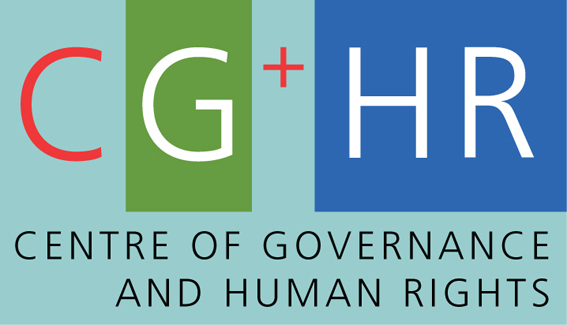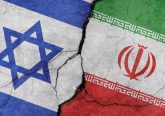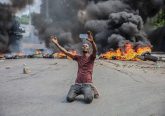International intervention in war-affected regions is the subject of much academic attention. Scholars and policymakers alike have been keen to understand the impacts, positive and negative, that international actors have when striving for peace in foreign countries. More often than not, the continuation of violence in areas that have been subject to heavy intervention, from Sudan to DRC, has generated staunch critique of the potential of such programmes to achieve their stated aim of ‘peace’. Africanist scholars in particular have identified efforts geared towards the increasingly linked aims of development and security as not merely ineffective, but exacerbating dysfunctional politics, insecurity and poverty across the continent. Following the wider critique of the liberal peace, interveners from UN peacekeepers to human rights NGOs are interpreted as enacting a ‘liberal imperialism’ that reinforces ‘western’ interests in the region, whilst promoting the superiority of ‘liberal’ values and conditioning new subjects into following them.
Adam Branch adheres to such an optic in his analysis of the international presence in northern Uganda, which has sought to bring peace to the region since the government’s war with the LRA insurgency has ebbed.[1] He argues World Bank development projects, the ICC, and human rights NGOs buttress Yoweri Museveni’s regime, an increasingly important ally in the War on Terror, as well as ‘disciplining’ northern Ugandan inhabitants into ‘liberal’ modes of politics and ultimately transforming them into malleable global subjects. Branch and others draw attention to the manner in which international assistance to ‘grassroots peacebuidling’, especially the controversial mato oput ritual, and human rights activism, does not aid in healing social ruptures.[2] Rather such practice often masks the extensive human rights abuses committed by the Ugandan army during the war by accentuating only the ‘local’ dynamics of violence and redirects popular understanding of the conflict away from the structural inequalities held up by the Ugandan state and its foreign backers. Moreover, individualized notions of rights rooted ‘liberal’ values are claimed to be incompatible with Ugandan political epistemologies and counterproductive to combatting wider social and economic inequalities.
Perhaps this is indeed the intention of economists, donors and politicians in Washington. It is also possible that in isolated pockets in northern Uganda where NGO presence is most dense that these logics of ‘liberal imperialism’ are being enacted. However not enough attention is paid in such a critique to how the inhabitants across northern Ugandan society perceive, interpret and react to this international presence.[3] When the agency of the ‘locals’ does surface in the critique of the ‘liberal peace’ it is nearly always through the lens of resistance. My own fieldwork from Gulu suggests that whatever the intentions might be of interveners, their presence is not conceived or evaluated in the manner critical scholarship discerns, begging many questions on our understanding of the role of international intervention in the politics of building peace.
By conducting very little of my research through NGOs I was able to discern a limited sense of their ‘footprint’ across society. One trend was particularly evident: no one I spoke to equated international intervention with the work of peacebuilding or human rights NGOs. Neither foreign assistance to the controversial mato oput nor the ICC were mentioned as an essential part of building peace. Instead, inhabitants of Gulu consistently highlighted the material support in the refugee camps, assistance in returning to the farm and various capacity-building programs as the main impact of internationals in helping Ugandan society attain peace. The almost invisible presence in the popular imaginary of peacebuilding and human rights advocacy, and their supposed power in moulding political practice, stresses a need to reconsider the extent to which the inhabitants of Gulu have been disciplined in to alternative forms of political behaviour.
Significantly, the intimation that international intervention propounded a specific narrative of the conflict that lends legitimacy to Museveni’s regime may be true, but it was evident that such a discourse did not gain traction across society. There was not only widespread acknowledgment of atrocities committed by the government during the war but also deep resentment towards the misdistribution of funds by the Museveni regime and the resultant lack of service provision and development in the north. This outlook even extended to sympathy for the LRA as a potential alternative. As one friend explained, ‘You know what [Joseph Kony] was trying to fight for? He wanted equality, and us there to be there [in government] also, to be recognized, to get services.’ The existence of such views, suggests that ‘liberal imperialism’ has had only a very limited impact on conditioning northern Ugandan political attitudes.
Moreover, rather than unearth an anxiety over tensions between liberal and illiberal practices of politics, my conversations in Gulu rode roughshod over such barriers, suggesting the normative aspirations of interveners are not necessarily straightforwardly distinct and contradictory to those of its inhabitants. Many had extremely positive visions of politics in the Global North, lauding the US for its wealth, free and fair elections and being ‘at peace’. This was particularly evident in the many voices calling for greater, even militarized, international intervention; as one woman implored me ‘take the right information from us to the international community so we can also be assisted in the best way possible, we need a change in the government just like what happened in Iraq and Libya.’ For many this affinity for ‘western’ intervention coexisted alongside many ‘illiberal’ practices, whether conforming to identity-based political attitudes, respect for ‘traditional’ forms of legitimacy or disregard for women’s rights. Critical scholars cannot ignore such voices for they underline the necessity of moving beyond interpretations that view the politics of building peace as driven by a Manichean split between liberal and illiberal political epistemologies.
Though these observations are preliminary at best, and may indicate little more than the fact that Uganda has not seen international intervention on the same scale as DRC, Bosnia or Afghanistan, they elicit several conclusions that beg further consideration. First international intervention, particularly if intended to bring about an epistemological or cultural shift may, in some contexts, have negligible impact. Both scholars and practitioners might benefit from considering whether ‘liberal imperialism’ is the dominant mode of politics in places such as Uganda or a barely discernible presence to the majority of the population? If international intervention has a limited place in moulding popular discourses, there is a need to question the extent to which we unduly privilege studying interveners and instead turn towards a nuanced and fine-grained analysis focusing on the inhabitants of war-affected regions, with only proportionate attention to international actors.
Second, and directly following from the previous point, it is important to move beyond the notion that the main fulcrum of the politics of peace is an ‘international-local’ clash between ‘liberal’ and ‘illiberal’ values. By jettisoning the liberal-illiberal binary and giving international intervention only its due attention, it may be possible to consider a network of fluid and multifaceted ‘international-local’ interactions, much like Frederick Cooper has analysed colonial-subject relations during the imperial era.[4] If we stop giving unnecessary emphasis to the manner in which interveners and their ‘liberalism’ determine the politics of peace in places like Uganda, we may begin to get a firmer grip on the political realities of those living in war-affected regions.
[1] Adam Branch, Displacing Human Rights: War and Intervention in Northern Uganda (Oxford: Oxford University Press, 2011)
[2] See for example Erin K. Baines, ‘The Haunting of Alice: Local Approaches to Justice and Reconciliation in Northern Uganda’, The International Journal of Transitional Justice, (2007), 1 (1): 91-114 and Paul Omach, ‘NGO Chiefs: Local Institutions, NGOs and Peacebuilding in northern Uganda’, Paper presented at Africa Research Forum, Centre for African Studies Cambridge, 29 April 2015
[3] A trend noted by Meera Sabaratnam, ‘Avatars of Eurocentrism in the Critique of the Liberal Peace’, Security Dialogue, (2013), 44 (3): 259-78
[4] Frederick Cooper, Colonialism in Question: Theory, Knowledge, History (Berkeley: University of California Press, 2005)







